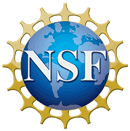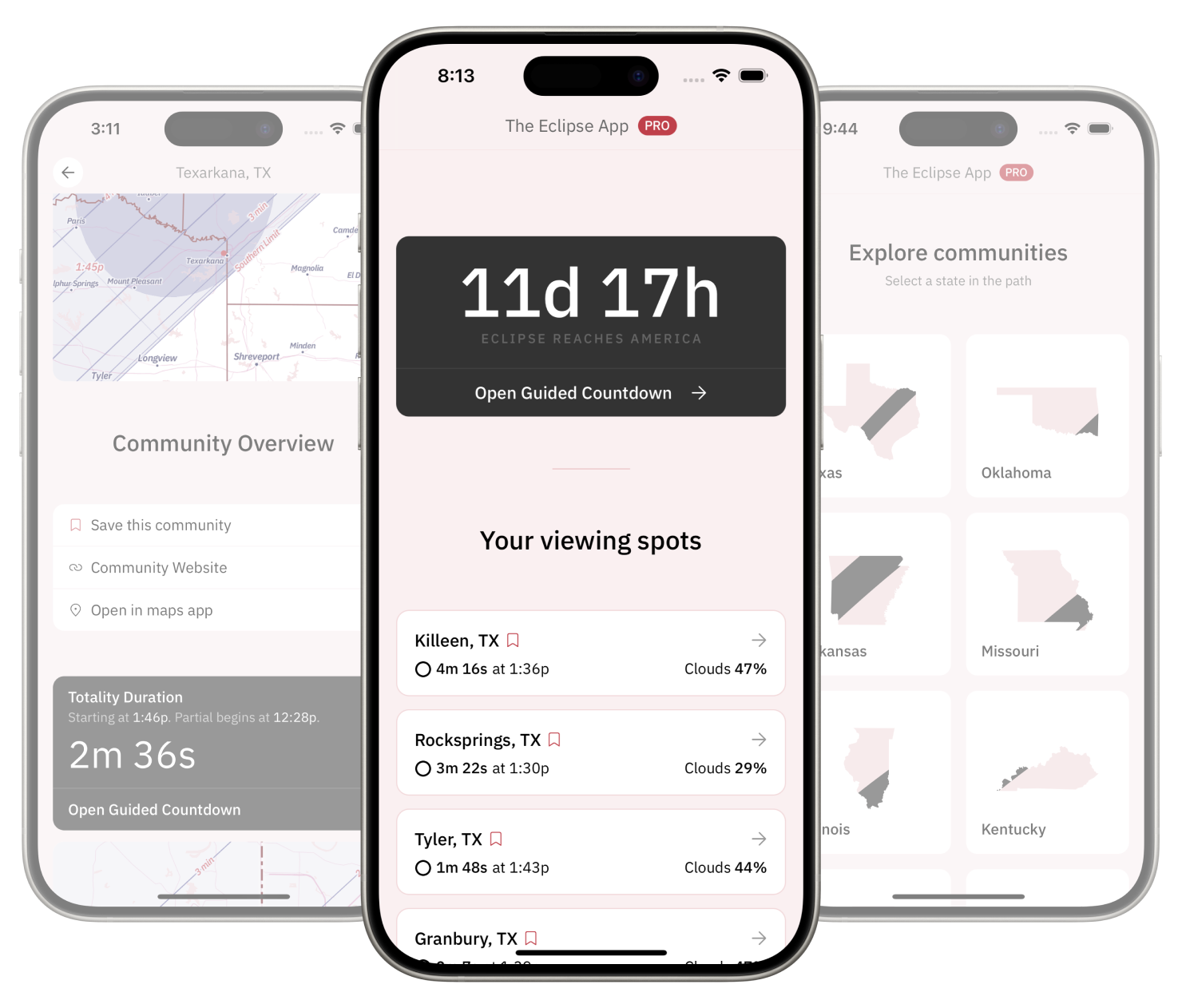
An eclipse happens when any celestial body passes in front of another. From Earth, a solar eclipse occurs when the Moon passes between the Sun and Earth and either partially or completely blocks the Sun. An even more precise term is an occultation; when a planet or moon moves across the face of another. Planets can occult the Sun. The Moon can occult a star. Astronomers have even detected extrasolar planets occulting faraway stars.
Solar eclipses occur only when the Moon passes between the Sun and Earth during New Moon but not every New Moon. When the Moon passes only partly across the Sun’s disk, we see a partial solar eclipse. When the Moon blocks out the entire Sun, as will happen on April 8, 2024 along a path stretching across the continental United States, we see a total solar eclipse. Between two and five eclipses occur every year over any part of the Earth. Because two-thirds of Earth is water, many eclipses occur over the ocean.
Occasionally, if the Moon is slightly farther away from Earth, the Moon doesn’t quite cover the entire disk of the Sun. We see a ring of sunlight around the lunar disk, what looks like a ring of fire, in what astronomers call an annular eclipse. Or, if the darkest part of the Moon’s shadow, called the umbra, doesn’t fall directly on Earth, we see a partial solar eclipse.
Watch our February 12th webinar, Moon Mondays: Meet Regional Observatories and Science Organizations, to hear about what local astronomical groups are doing for the eclipse and how you might partner with them in the future.

 The Eclipse Soundscapes Project is a NASA Citizen Science project funded by NASA Science Activation that is studying how eclipses affect life on Earth during the October 14, 2023 annular solar eclipse and the April 8, 2024 total solar eclipse. Eclipse Soundscapes will revisit an eclipse study from almost 100 years ago that showed that animals and insects are affected by solar eclipses! Like this study from 100 years ago, ES will ask for the public’s help. ES will also use modern technology to continue to study how solar eclipses affect life on Earth!
The Eclipse Soundscapes Project is a NASA Citizen Science project funded by NASA Science Activation that is studying how eclipses affect life on Earth during the October 14, 2023 annular solar eclipse and the April 8, 2024 total solar eclipse. Eclipse Soundscapes will revisit an eclipse study from almost 100 years ago that showed that animals and insects are affected by solar eclipses! Like this study from 100 years ago, ES will ask for the public’s help. ES will also use modern technology to continue to study how solar eclipses affect life on Earth!
Get involved here: Eclipse Soundscapes
Learn about becoming an Eclipse Soundscapes Facilitator here.

A Buffalo scientist and NASA ambassador put together this site and a Facebook page to share local, regional and national resources.
Through generous support from their funders (Gordon and Betty Moore Foundation; NASA), the Space Science Institute has provided millions of solar viewing glasses, in-person training workshops, kits, print resources and more to over 10,000 public libraries and state library agencies across the United States and U.S. territories for the Annular Solar Eclipse of October 2023 and the Total Solar Eclipse of April 2024.
 The National Solar Observatory (NSO) is the national center for ground-based solar physics in the United States (www.nso.edu) and is operated by the Association of Universities for Research in Astronomy (AURA) under a cooperative agreement with the National Science Foundation Division of Astronomical Sciences.
The National Solar Observatory (NSO) is the national center for ground-based solar physics in the United States (www.nso.edu) and is operated by the Association of Universities for Research in Astronomy (AURA) under a cooperative agreement with the National Science Foundation Division of Astronomical Sciences.
Check out their website for extensive research and information:
 Fully experience the 2024 total eclipse — The Eclipse App
Fully experience the 2024 total eclipse — The Eclipse App
This app was featured in a recent AAS webinar, co-created by The Planetary Society.